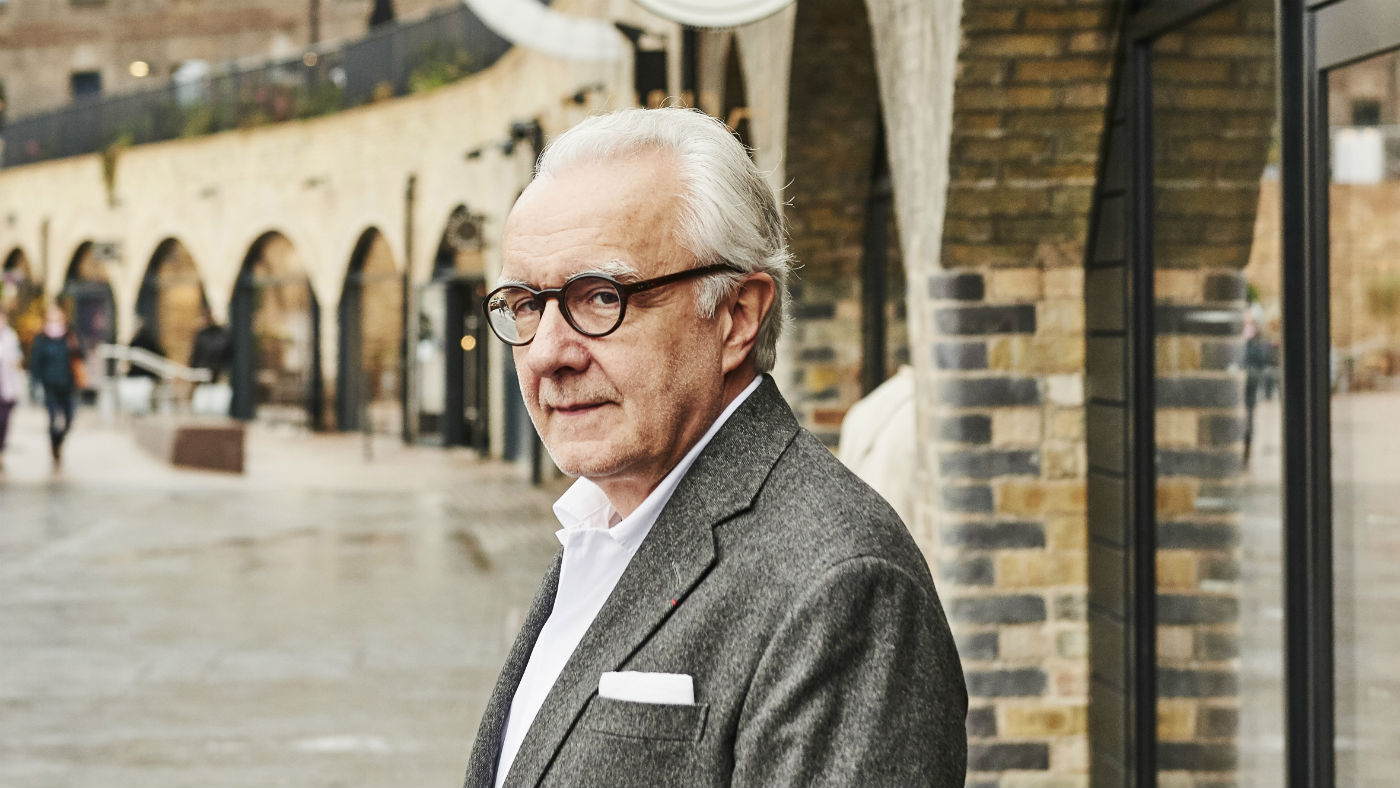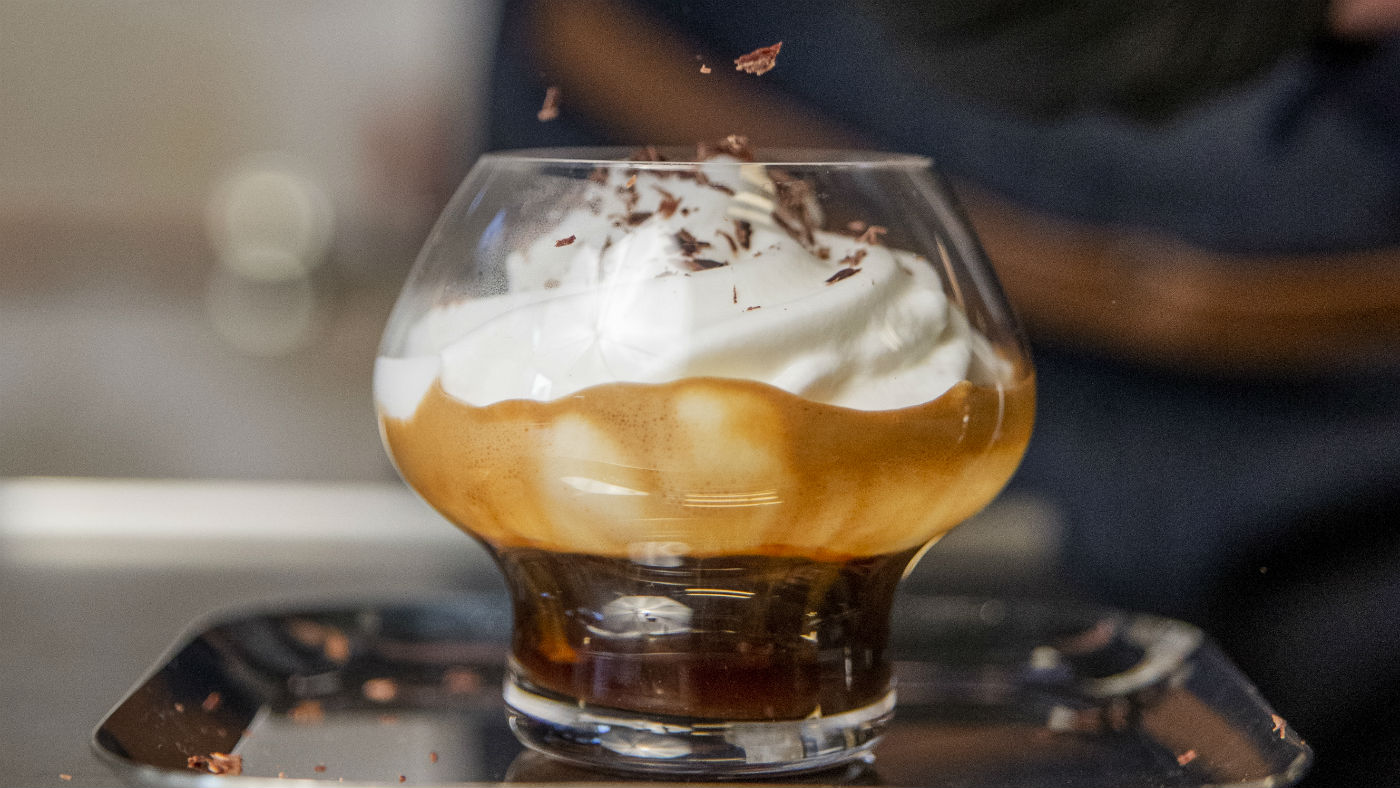Alain Ducasse on the perfect cup of coffee
The Week Portfolio talks to the Michelin-starred chef about his new high-end cafe in London

A free daily email with the biggest news stories of the day – and the best features from TheWeek.com
You are now subscribed
Your newsletter sign-up was successful
The coffee at Michelin-starred chef Alain Ducasse’s new London cafe may be “nose-bleedingly expensive” but it’s also “delicious, rich, pungent and captivating”, according to one recent review. A “damn fine brew,” The Guardian’s Grace Dent concluded.
And at £15 a cup it ought to have been. Of course, Dent chose the most expensive coffee on the menu, but connoisseurs are clearly willing to splash out for an excellent brew.
So what is the magic behind the cup? The Week Portfolio caught up with French-born uberchef Ducasse to find out more about his new venture, coffee purism and how London’s cafe scene is changing.
The Week
Escape your echo chamber. Get the facts behind the news, plus analysis from multiple perspectives.

Sign up for The Week's Free Newsletters
From our morning news briefing to a weekly Good News Newsletter, get the best of The Week delivered directly to your inbox.
From our morning news briefing to a weekly Good News Newsletter, get the best of The Week delivered directly to your inbox.
What, in your view, are the essential elements of a good cup of coffee?
It’s an entire chain of excellence, from the coffee tree to the cup. Every step has an impact.
First the location of the farm and the way the land is cultivated, cared for and what it represents for the people there, how the beans are picked and dried. Then, how the coffee is roasted, which is a crucial step, where temperature and time are essential. And of course, the way the cup of coffee is prepared, which, again, includes a myriad of parameters from the quality, pressure and temperature of water to the expertise and passion of the ‘cafelier’ (the name for our team members preparing the coffees, which is a combination of ‘café’ and ‘sommelier’; a person who combine the knowledge of coffee, a sense of service and hospitality and the talent and skills to prepare coffee beverages).
All that said, the notion of good cup of coffee remains very personal: each drinker has their own preferences and reasons for consuming coffee. That’s why we offer great signature blends starting at £2.50 for espresso and £3.50 for filter coffee, all the way up to rare single-origin coffees for connoisseurs. That’s also the work of our team in Paris and in London, at Le Café at Coal Drops Yard, to understand our clients’ expectations.
A free daily email with the biggest news stories of the day – and the best features from TheWeek.com

How has coffee in the UK evolved over the past 20 years?
A cliché will soon die: in the coming years, we will drink more coffee than tea in the UK! There is still a gap compared with the Continent where coffee is almost twice more consumed. Also, instant coffee is still predominant, even though roast and ground coffee has significantly increased. Altogether, the British market is flourishing and the interest for coffee gets stronger and stronger.
What is new and interesting about the approach you are taking to coffee with Le Café?
I have for coffee the same approach to the one I have for chocolate: mastering the entire process, starting from the bean all the way down to the cup.
We source coffee beans in different countries which allows us to offer a wide range of great, different single-origin crus and signature blends. Even more importantly, I approach the coffee world with my perspective as a chef.
Roasting coffee is comparable to cooking: the same precision is required to exhilarate the best of the taste and flavour. This is why I hired Veda Viraswami as head roaster: he placed third in the 2018 World Coffee Roasting Championship and is twice French Coffee Roasting Champion. And blending different crus is comparable to fine tuning a recipe which combine various components.
Some people are exceptionally purist about coffee - and food and drink generally - insisting that it be prepared and served in quite specific ways. No cappuccini after 11am, no pineapple on pizzas etc. Do you ascribe to purist principles for food and drink?
I’m not that much inclined to dictate this sort of overall, a bit arbitrary principles. To a large extent, I prefer being surprised. For instance, the coffee drinks like cascara, made of infused dried skins of the coffee cherry, or the cold-brew served draught like a beer, are quite exciting experiences, beyond any standard principles.

Should people be concerned about the provenance of their coffee? How important is it to buy fair trade?
More than 125 million people around the world depend on coffee for their livelihoods, with around 25 million smallholder farms producing 80% of the world's coffee. It goes for coffee like for all the rest of agriculture or fishery. Small producers working in a sustainable way must be encouraged. Because they respect the planet and because they create better produce, and sometimes preserve ancestral traditions of cultivations too.
Your name is these days mentioned in the pantheon of premier French chefs alongside Escoffier and Bocuse. To what do you credit your success?
To the fact that I don’t rely on so-called success. In each of my restaurants, twice a day, for each and every client, we put our reputation at stake. We can’t afford resting on our laurels. The only effective answer is to work more, better and quicker.
Is it possible to be a great chef today without also being a savvy businessman or woman?
I could give you a list of hundreds of great chefs in the world who just have one restaurant of their own and are perfectly fine with that. I still am a chef and don’t recognise myself as a businessman. I gathered around me a great team who deal with the business aspects, allowing me to focus on what I know and what I like: cooking and sharing my vision for Ducasse Paris.
Ducasse Paris currently operates 32 restaurants in 7 countries. What is next for you?
Cooking for my contemporaries is an endless venture. Who knows: if astronauts are going to settle on Mars, I would be glad to prepare food for them… I am excited for what I haven’t done yet and for what tomorrow will hold.
And what would you like your legacy to be?
Much too early to talk about legacy. I am just starting my career!
Le Café at The Coal Drops Yard, 16 Bagley Walk Arches, London. For more, visit lecafe-alainducasse.com
Arion McNicoll is a freelance writer at The Week Digital and was previously the UK website’s editor. He has also held senior editorial roles at CNN, The Times and The Sunday Times. Along with his writing work, he co-hosts “Today in History with The Retrospectors”, Rethink Audio’s flagship daily podcast, and is a regular panellist (and occasional stand-in host) on “The Week Unwrapped”. He is also a judge for The Publisher Podcast Awards.